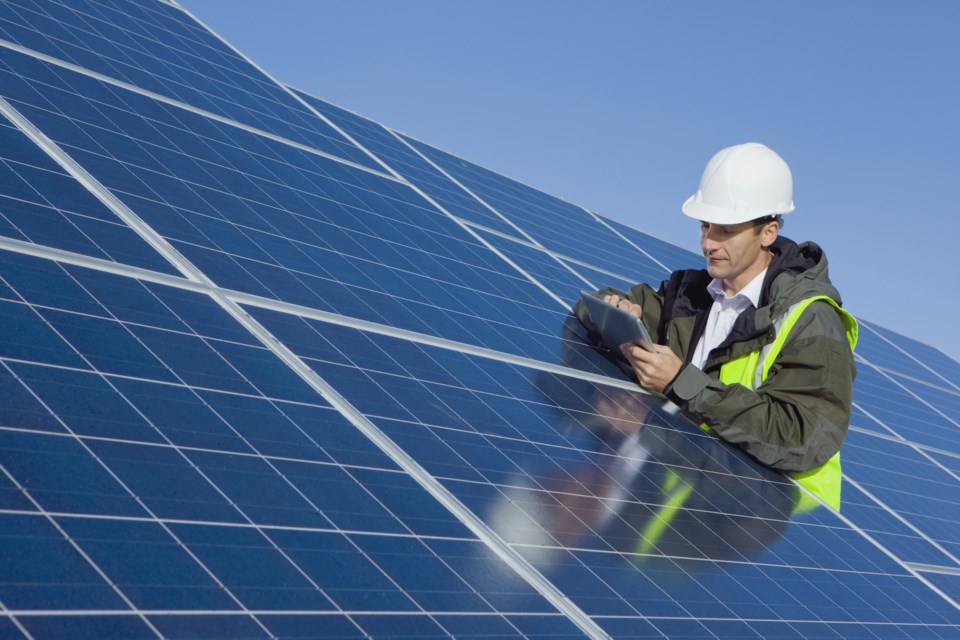LAKELAND – The federal government will proceed with the Clean Electricity Investment Tax Credit (Clean Electricity ITC), proposed last year, which would provide a 15 per cent refundable tax credit for investments in eligible clean electricity generation and storage technologies.
This includes renewable energy technologies like wind, solar, nuclear, and hydro, as well as natural gas with carbon capture and storage.
The tax credit was made available following the delivery of Budget 2024 on April 16, to projects that did not begin construction before March 28, 2023. The credit is not available after 2034.
Clean Electricity ITC is estimated to cost the federal government $7.2 billion over five years from 2024-25 to 2028-29, and an additional $25 billion from 2029-30 to 2034-35.
Bill C-59
Budget 2024 also expects Bill C-59 to receive Royal Assent before June 1.
The federal government says this will "provide businesses with the certainty they need to make investment decisions in Canada today,” by delivering both the Carbon Capture, Utilization and Storage investment tax credit (CCUS ITC) and the Clean Technology investment tax credit (Clean Technology ITC) initially proposed in Budget 2021.
The lack of certainty on part of the federal government has been a major hurdle for oil and gas companies to invest on CCUS projects, including Pathways Alliance’s carbon capture project.
Pathways Alliance is a consortium of Canada’s largest oilsands companies. The group plans to construct an estimated $16 billion carbon pipeline and underground storage hub, connecting over 20 oil sands facilities in the Fort McMurray, Christina Lake and Cold Lake regions, to a carbon storage hub in Cold Lake.
Cenovus Energy is among the six companies making up the Alliance.
Rhona DelFrari, Chief Sustainability Officer and Executive Vice-President, Stakeholder Engagement at Cenovus, said during Cenovus’ March 5 Investor Day in Toronto, that government funding partnerships in Canada “are not enough for large-scale CCS to proceed in the oil sands.
She said at the time that Canada is employing a “complex, multilayered and evolving stick-based approach, with some carrots thrown.”
Citing a BMO data, she compared Canada’s approach to CCUS with the United States, who she said offers straightforward incentives based on the amount of CO2 stored, explaining that a straightforward approach would be more attractive to investors.
“Without competitive fiscal incentives, our country risks being left out as large-scale emissions reduction investments are developed and deployed elsewhere, where they get the best returns,” said DelFrari.
“We’re also dealing in Canada [right now with] significant policy uncertainty,” she said, listing examples such as the proposed federal emissions cap on the oil and gas industry, clean electricity regulation, and the new methane regulations.
“The result is a lack of clarity that companies need to make long-term, multi-decade, multi billion-dollar decarbonization investment decisions,” she said.
Carbon Capture, Utilization and Storage investment tax credit (CCUS ITC)
If Bill C-59 goes into law, the CCUS ITC will offer a refundable ITC of up to 60 per cent of expenses to capture carbon from ambient air; up to 50 per cent of expenses to capture carbon other than ambient air; and up to 37.5 per cent of expenses related to the transportation, storage, or usage of carbon capture equipment, according to February 2024 information from the Office of the Parliamentary Budget Officer.
The CCUS ITC, along with Alberta’s 12 per cent subsidy offer for capital costs with carbon capture projects, would help cover the capital costs of Pathways Alliance’s project.
In an April 18 statement to Lakeland This Week, DelFrari says she is glad to see the federal government take another step with Budget 2024, with regard to the implementation of its Investment Tax Credit.
She says an investment tax credit is a vital component of the funding partnership required to support carbon capture and storage in Canada.
“Pathways remains engaged in discussions with both the federal and Alberta governments to achieve a reasonable sharing of risk that will allow the oil sands sector to decarbonize while preserving the global competitiveness of our exports and the government revenues that support the many publicly funded services Canadians rely on,” says DelFrari.
On March 22, Pathways Alliance also announced that it began filing regulatory applications to the Alberta Energy Regulator (AER) for its CCS project. Approval might take a year, and if approved, Pathways Alliance can begin the construction process.



